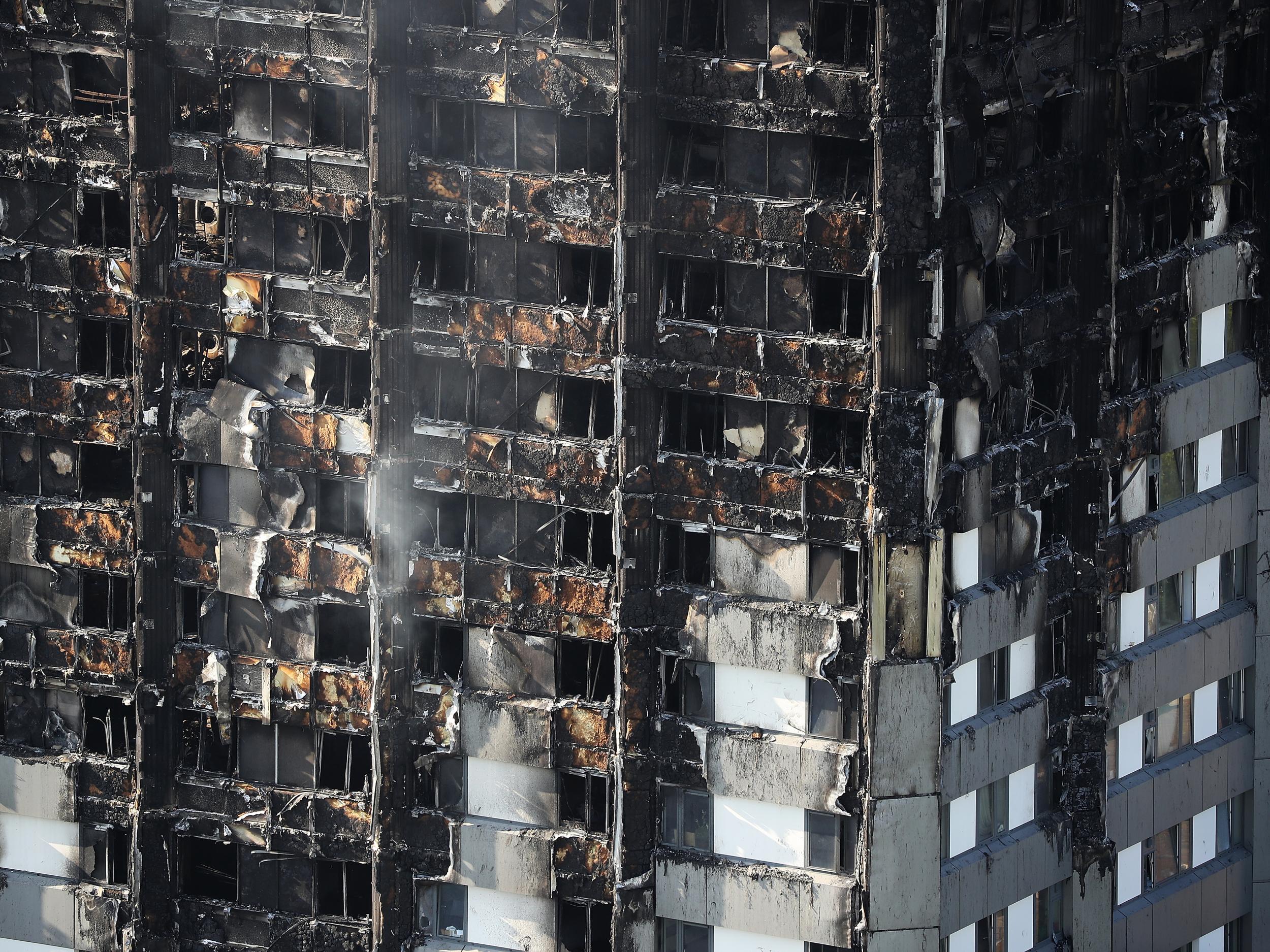Grenfell Tower fire: Bishop of Kensington on first Christmas since fatal blaze, 'I still hear the cries of grief now'
Fire underlines a spiritual problem, not just a political one, says clergyman

In the hours and days following the fire at Grenfell Tower, as the blackened husk of the building continued to smoulder, residents and relatives gathered in community halls serving as emergency relief centres.
People waited here anxiously for news of loved ones who were missing. The families and friends of 70 people eventually received the news they feared.
“I still hear [the cries of grief] now,” said Graham Tomlin, the Bishop of Kensington, recalling the moment the family of a five-year-old boy were told he was dead. He was the eldest of two brothers.
“I’d spent time with the family the day before and heard the news come through that the little boy had died.
“They had a priest with them from their own church and you could hear the sobbing from the room next door.
“It was representative of a lot of families who were grieving at that time. You were aware of being close to raw suffering.”
Mr Tomlin, who has been a central figure in the victims’ support network, coordinated a memorial service at St Paul’s Cathedral for the victims on the six-month anniversary of the fire earlier this month.
Although the final official death toll of 71 has been issued, including a baby who was stillborn hours after the fire, the north Kensington community continues to wait anxiously, the bishop said.
“That sense of uncertainty has been quite a theme over the last six months – there are a lot of questions that still need answering.”
If issues including the cause of the fire and the rehousing of victims are not resolved urgently, 2018 could prove even harder than this year for the bereaved and survivors, he added.
Members of the north Kensington community continue to say they are not placed at the centre of the public inquiry into the tragedy, despite repeated assurances from its chairman, Sir Martin Moore-Bick.
Core participant status has now been granted to 424 individuals and groups, which allows them access to evidence and the right to suggest lines of questioning.
But it does not afford them decision-making capabilities, and Grenfell Tower residents have petitioned the Prime Minister to appoint community representatives to the inquiry’s main panel.
“The inquiry must not just to be a forensic process which ignores the human dimensions. It needs to recognise the need to win the confidence of local people,” Mr Tomlin said.
As the probe continues, the issue of re-homing the residents is “slow”, according to the bishop.
Four out of five families made homeless by the fire were still searching for permanent accommodation, it emerged earlier this month, with almost half facing spending Christmas in a hotel.
In the days following the fire, Theresa May promised all the residents would be rehoused within three weeks.
“Initially there was a sense of shock and novelty of being in a hotel. But as time has gone on, a lot of people felt this is just not the place they want to be. It’s small, it’s cramped, you lose a sense of community,” Mr Tomlin said.
While those living in hotels face Christmas in strange surroundings, “for the bereaved families there’ll be empty seats in the room”, Mr Tomlin said.
“They’re trying to make Christmas as good as they can, especially with children around.”
Grenfell Tower memorial service: in pictures
Show all 31The inequality within the borough that was thrown into stark contrast by the fire at Grenfell was a reflection of a spiritual crisis, not just a political one, the bishop said.
“In Kensington you have this phenomenon of very different communities living very close to each other but not having a great deal to do with one another.
“It speaks about the fragmentation of our social life and the way in which we don’t reach out to people that look different to us.
“This is more than just politics – there are deeper, philosophical, spiritual questions that this raises about the way we relate to one another.”
For this reason, he chose to speak about loving your neighbour at the memorial service. “Not just tolerating their existence,” he added.
Subscribe to Independent Premium to bookmark this article
Want to bookmark your favourite articles and stories to read or reference later? Start your Independent Premium subscription today.

Join our commenting forum
Join thought-provoking conversations, follow other Independent readers and see their replies